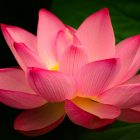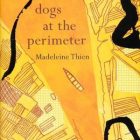Hearing Voices: Women Versing Life presents Qiu Jin
What fascinates me most about Qiu Jin is the near absence of her work in America, especially considering our love of a rebel and a martyr. Sure, if you Google her name, several sites will offer a version of the same information: Qiu Jin lived from 1875 to 1907. Her family was wealthy, she had an arranged marriage at the age of twenty-one, and she had two children. Her feet were bound, she was a prolific writer in several genres including poetry, and she became a revolutionary. At the age of thirty-two she was beheaded for plotting an uprising against the Qing Dynasty.
After reading these tidbits, I was anxious to find out more about Qiu Jin and scoured my inter-library loan system for biographies, and while I did find brief listings in books such as Herstory: Women Who Changed the World, there were no complete biographies.
Next, I searched for translations of her poetry, and I found a number of her poems in Women Writers of Traditional China: An Anthology of Poetry and Criticism edited by Kang-i Sun Chang and Haun Saussy, but no complete books. I contacted Saussy to ask if there was something I was missing. There was not.
Qiu Jin has five or six books of poetry in China, Saussy said, and there are several biographies written about her in French and Dutch, “and many, many biographies in Chinese, ranging from carefully documented studies to comic books and ideological sermons, not to mention TV serials and movies,” he said. “Her beheading in 1907 was a scandal, or, as we’d say today, a public relations misstep for the Qing dynasty.”
Her work must be difficult to translate, I supposed, as that was a common complaint of Marina Tsvetaeva’s work, but no. “Her writing is fairly direct, not hard to translate at all,” Saussy said. “Chinese poetry is full of allusions and these can be tricky, but she was writing in a style meant to be forthright, loud and heroic, so it’s usually easy to decode.”
It’s crossed my mind, as it may have crossed yours, that perhaps Qiu Jin’s poetry isn’t any good. Of course, one’s idea of what constitutes good poetry and bad poetry is subjective, but let me offer you this sample:
from “Viewing the Moon”
“Though carrying mud in its grief, the swallow cannot fill in the sea;
Nor can I, lacking the ability to smelt stone, mend the heavens.
The Xiang River and northern clouds became tangled in old dreams . . .”
from “Preoccupation (Written While in Japan)”
Unbinding my feet, I washed away
a thousand years of poison.
My heart fired with excitement, I awoke
one hundred slumbering flower-spirits.
But pity my shagreen handkerchief—
Half stained with tears
and half with blood.
( Both excerpts from Women Writers of Traditional China: An Anthology of Poetry and Criticism.)
Even if the poetry was lousy, that wouldn’t explain the absence of a full English biography for a Chinese heroine. What, then, is the reason for the absence in America of the work of a poet who broke out of her traditional, conscripted, female roles as wife and mother —wore men’s clothing and drank wine— who championed her female peers and emboldened them to fight for their right to an intellectual life, who was a feminist before feminism was a word?
Well, the direction Qiu Jin’s story has traveled is not so surprising considering that the word feminism had been kicking around in France and the Netherlands for nearly forty years before it caught on in the U.S. in 1910. So maybe we’re just slow.
There is a glimmer of hope, however. Autumn Gem, a documentary about Qiu Jin debuted in 2009 and is making its way around the country (check the website for showings), and filmmakers Rae Chang and Adam Tow also have a forthcoming iBook—although details about the iBook are unclear to me as I don’t read Chinese, but perhaps you do, and for more information about the impetus for the movie, check out The China Beat for an interview with Chang.
I know Qiu Jin is only one example of maybe thousands of poets missing from American book shelves, so if you’re reading this, and you have another under- or un-represented poet in mind, give us a shout. The more we know; the more we know. If you’re a translator, get to work already. Let’s make this blog series redundant.
(Image from here.)



